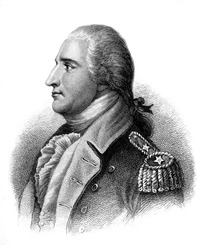After spending about an hour trying to figure out what I should blog about, I came up with absolutely nothing. The other day I read an article about the DC snipers. It was about the youngest guy of the duo, Malvo, now 27, and how now he realizes how horrific his actions were during that time. You can read it here…it’s pretty short and rather interesting.
This kind of piggy backs off of my first blog post and how a leader must have influence. This 17 year old kid was so influenced by this man that he was going around killing people for no reason. It amazes me how powerful influence can be. As a leader, one should have this kind of influence; not necessarily influencing someone to murder people, but to take action. As The Great James Brown said anybody can get up “talking loud and saying nothing!” It’s more to it than making people feel good by using a bunch of lip service, but can you actually influence others to take action and make change. I think the relationship between Malvo and Muhammad illustrates this idea perfectly, which brings me to my next point.
BE CAREFUL OF WHO YOU ALLOW TO INFLUENCE YOU…not just as a leader but anyone. If someone is trying to influence you to do something that is against your basic moral beliefs, RUN!!!!!! Some people have an amazing gift of talking really well. I’ve run across my share of smooth talkers that could easily persuade someone that it wasn’t raining as they both stand soaking wet from the pouring rain. Don’t allow people to influence you negatively.
Hopefully this didn’t come off as word vomit and you enjoyed it…!



 Posted by cforema2
Posted by cforema2


